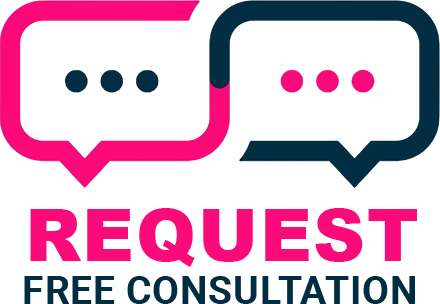Blogs
Do Not Hire Our Company
This is the first installment of our four-part series exploring the use of technology consultants.
“Your company should not outsource when the task is core to your competitive advantage.”
— Harvard Business Review, “Don’t Outsource Your Core Competencies”
 You are under pressure to deliver results, optimize resources, and lead your organization toward innovation. Consultants can be transformative in many cases, but not every situation calls for bringing in external help. Understanding when you do not need a technology consultant is just as important as knowing when you do. Making this decision can save your organization time, money, and unnecessary complexity.
You are under pressure to deliver results, optimize resources, and lead your organization toward innovation. Consultants can be transformative in many cases, but not every situation calls for bringing in external help. Understanding when you do not need a technology consultant is just as important as knowing when you do. Making this decision can save your organization time, money, and unnecessary complexity.
When In-House Expertise Can Deliver Results
If your internal team already has the expertise and bandwidth to tackle the challenges at hand, hiring a consultant may add unnecessary layers to the process. Trusting your in-house experts to execute widely understood technologies or implement well-documented systems not only streamline operations but also demonstrates that you value their capabilities. By empowering your team to take ownership of these initiatives, you foster a sense of pride, confidence, and commitment. Instead of allocating resources to onboard external consultants, consider investing in training and development to upskill your team, reinforcing their importance to the organization's success, and ensuring they feel appreciated for their contributions.
The Scale or Scope Does Not Justify Outside Help
Not every project warrants the expense of hiring a consultant. If your team has the capacity, small-scale initiatives, or short-term tasks, such as troubleshooting minor issues, conducting software updates, or rolling out straightforward tools, can often be managed effectively in-house. Only consider outsourcing these efforts if your team’s time is better spent on more strategic, value-add initiatives.
The Danger of Over-Engineering a Simple Solution
Consultants often bring polished methodologies and frameworks to the table, which can be invaluable for solving complex problems. However, for simpler challenges, their approach can risk over-engineering a solution. If your problem is straightforward and the solution is clear, relying on your internal team can help avoid the risk of unnecessary complexity that might arise from external involvement.
Acceptable Risk and Strategic Delays
If the anticipated return on investment is marginal or unclear, if the risks associated with in-house management are nominal, or the cost of delay is acceptable, it may be prudent to allocate to avoid technology consultants. Rather than immediately seeking external help, consider exploring cost-effective alternatives that can yield comparable results. For instance, peer networking within your industry can provide valuable insights and solutions without incurring significant expenses. Similarly, open-source tools and platforms often offer robust, community-driven support and functionality that can address specific needs without additional consultancy costs.
Additionally, internal brainstorming sessions or cross-departmental collaboration could uncover innovative ideas and solutions that might not only solve the immediate challenge but also enhance team cohesion and internal expertise. By leveraging these strategies, you not only save on costs but also empower your team to develop a mindset of resourcefulness and adaptability, which are invaluable for long-term organizational growth.
When Long-Term Dependence Is a Concern
Another consideration is the risk of developing long-term dependence on consultants. This can hinder an organization’s ability to develop its own expertise and adapt to evolving challenges independently. By investing in knowledge lineage, ensuring that critical expertise, processes, and skills are retained and passed on within the organization, you create a foundation for resilience and flexibility.
Reliance on external resources might solve immediate problems, but over time, it can lead to gaps in institutional knowledge. When consultants leave, they often take their expertise with them, leaving internal teams struggling to maintain or evolve the solutions implemented. This can result in costly reinvestments in external help for what could have been managed in-house. If and when you decide to use technology consultants, ensure processes are documented to your liking.
Building internal capacity ensures not only operational sustainability but also fosters a culture of ownership and accountability. Teams empowered with the tools, training, and opportunities to innovate are more likely to adapt to future needs effectively. Moreover, avoiding overdependence on external consultants aligns with long-term strategic goals, such as cost management, employee development, and the creation of proprietary processes that differentiate the organization from competitors.
Key Questions to Ask Before Deciding
Before engaging a technology consultant, ask yourself these crucial questions to determine whether their involvement is necessary:
- Does my internal team have the skills and bandwidth to address this challenge effectively?
- Is the project small enough in scale that it does not require external expertise?
- Could involving a consultant overcomplicate a simple solution?
- Will hiring a consultant align with our goal of building internal capacity and autonomy?
Conclusion
Knowing when to engage a technology consultant is a critical skill for any tech leader but knowing when not to is equally important. By trusting your internal team, carefully evaluating the scope of your projects, and maintaining a focus on cost and value, you can make informed decisions that serve your organization's best interests. Remember, the ultimate goal is not to rely on external consultants but to empower your organization to achieve its objectives confidently and independently.
About the Author
Patrick Kelly is the President and CEO of 4th Season Consulting. With over 20 years of experience in value-based medicine, population health, and care management, Patrick has led numerous successful initiatives in the healthcare industry. His expertise spans various roles, including CIO/CTO at Phytel, Loopback Analytics, and MPOWER Health, as well as Vice President of Information Systems at Catalyst Health Group.
About 4th Season Consulting
4th Season Consulting specializes in the unique needs of the healthcare industry by providing a wide range of consulting services including business intelligence, custom development, IT support, cloud infrastructure, HIPAA and compliance consulting, and digital marketing. The 4th Season Consulting team brings a depth of expertise tailored to the unique needs of healthcare providers, from solo practitioners to large organizations. All without contract minimums or long-term obligations.

